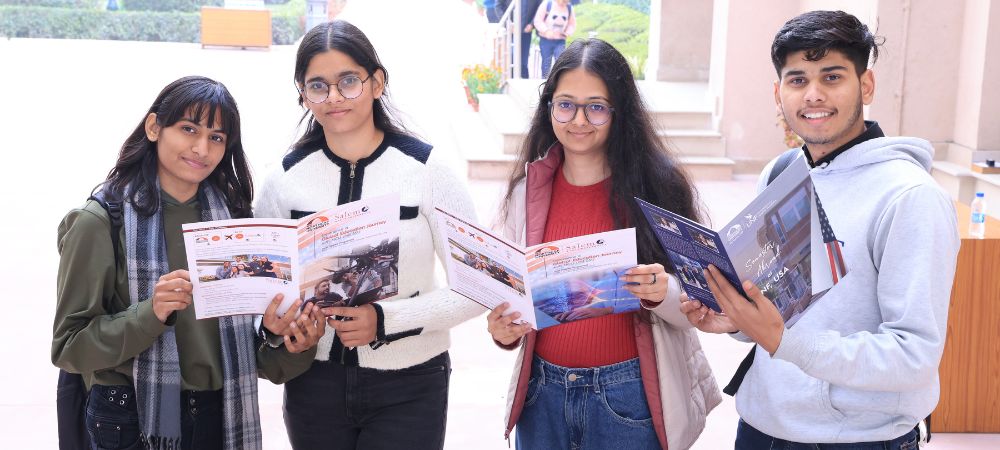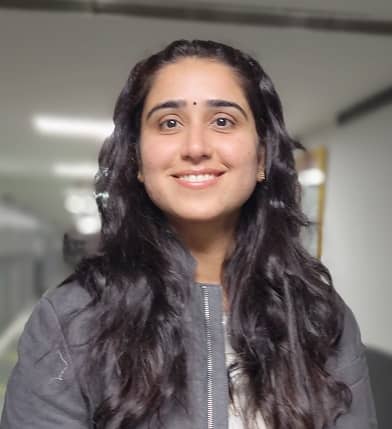How University Education Helps Students Find Their Purpose


Finding one’s purpose has become such an arduous task in today’s fast-paced world. The journey to self-discovery has been, is, and most definitely will be personal and unique to each person; however, higher education is, no doubt, one of the major milestones on that journey. University education is not merely a means of receiving degrees or training for work. It rather has a very important function of shaping the students’ interest and their talents and, in the end, showing them their direction in life. Universities form an organized system where students can delve into various fields and learn from experienced professionals, have meaningful experiences, and interact with a very diverse people group. Altogether, these aspects create an identity and a mission for an individual.
1. Exposition to Diverse Ideas and Disciplines
One of the great things one gets from university education is the provision of exposure to various subjects and ideas that allow wide scope of exploration compared to a high school. Often, the curriculum a student in high school goes through is rigid and doesn’t provide much room to explore very many subjects. University education on the other hand provides flexibility. The student can pursue study in related courses besides those in his major field of study. For example, an engineering student might take electives in philosophy, literature, or psychology. This leads him to discover new interests and forces him to question his or her preconceptions and broaden the intellectual horizons. It is common for universities to remind their students of the benefits of interdisciplinary learning where they link concepts and ideas across different disciplines. This exposure not only expands their knowledge but also engages them in thinking and linking those ideas with their personal and professional goals. In this way, it helps them understand and know more about their values, what drives them, and more of how they can contribute to society.
2. Global Perspective and Mindset
University life is, more than anything, such a transformative period that will have everyone gear up for their individual growth. Some of them far away from the cozy shelter and all the known comforts at home undergo enough different challenges and experiences to force them into gazing into their souls to realize who they are and what they are up to in this world. It is through this self-reflection process which eventually brings a more advanced digression into one’s purpose in life. Many universities also offer mentorship programs, counselling services, and workshops intended to enforce or develop self-awareness and emotional intelligence. Most of the university resources help the students prepare to know about their inner world, as well as the external forces they have to encounter. Such programs will make the students actually think about their strengths, weaknesses, and desires and consequently make them clearer as to where they need to go from here. With a mix of academics and person-exploration processes, students are therefore put in such a unique environment where they will be able to fully understand themselves. Self-discovery is seldom easy or straightforward. However, it is necessary to understand the difference between what is important to them and the type of life they want to live.
3. Meaningful Relationships
Another very important role of university education is actually establishing meaningful relationships with fellow students, lecturers, and peers. These associates are very much likely to determine a student’s sense of purpose. Students also develop a holistic view by interacting with people from diverse backgrounds and disciplines. They tend to appreciate the magnitude of diversity in culture, ideas, and perspectives toward developing a better view of life. Furthermore, the friendships made at universities last the entire lifetime and may even be a gateway to several opportunities that may determine a student’s career and personal development. Group discussions, social events, and projects assist students in finding contacts with other people or friends who share the same values and pursuits. Such friendship inspires the student to pursue avenues they would not otherwise have. Faculty members and teachers would encourage the students to find their vision. The teachers can do this through research work, one-to-one discussions, and academic counselling to make the students realize their potential and associate their academic endeavours with their long-term vision. Usually, these mentors give guidance to such students on challenges and opportunities available in the domain of specific disciplines, and thus, the student will take well-informed decisions as to how they would like to spend their future.
4. Practical Experience and Skills
While it is inevitable to gain theoretical knowledge, practical experience also plays a vital role in finding the purpose. The universities arrange several experiences for the students to create and learn through regular practice: internships, research projects, community service, and other kinds of extracurricular activities. All these experiences help them translate their lessons in the classroom into a real-life application, so that they know what they can contribute to this world. Internships and work placements provide insights into various types of industries and professions. Working in a professional environment allows the student to ascertain whether a given career is something they should pursue or if it matches their interests or morals. First-hand experience will allow them to make intelligent decisions with respect to their futures as well as further understanding of what makes them come alive. Another good way that students can associate with a greater purpose is through community service and volunteering. It helps them develop responsibility and empathy, making them feel closer to society. These usually make them get into careers that help contribute to the world in a positive way or another.
5. Critical thinking and problem solving
Universities encourages critical thinking and problem-solving essential skills needed to find one’s purpose. By way of coursework, research, and collaborative projects, students challenge themselves to think deeply about some big issues; analyse a variety of perspectives; and develop solutions, thus improving their intellectual engagement and ways of approaching problems. Critical thinking also enables students to critically interrogate the norms and conventions of society. They are challenged to seek their own opinion concerning themselves and reflect on their value system. They are urged to conceptualize the platform from which they can make a difference in society. Developing this ability further enables them to grapple with the dilemmas that come with uncertainty and help them in making decisions to suit their values and goals.
6. Extracurricular activities role
Extracurricular activities help learners discover their purpose. Universities boast the widest range of clubs, organizations, and societies- all for a diverse range of interests. Joining a debate club, participation in a sports team, or getting involved in a cultural society are examples of the wide range of personal developments outside the classroom. This can develop the knowledge of extracurricular activities about new hobbies and leadership development, as well as a feeling of belonging, while exploring one’s passion and talent in one’s various talents. It also involves developing a balanced prospective view of life by complementing the individual’s academic responsibilities with personal interests.
7. Building Purpose through Global Exposure
Many universities hold great interest in exposing the world to their global level, whether it is through a study abroad program, international collaboration, or diversity within campus communities. Coming into interaction with people from other cultures and backgrounds provides students with more diversity in their worldview. This exposure increases the scope for the students to think more about their role in the world and how they can work to solve problems in the world. Student exchange programmes, for example, offer the chance to immerse within those cultures, languages, and traditions of that society. These experiences fine-tune adaptability and resilience and encourage a greater appreciation for the diversified ways of life. In addition to such exposures, students are also encouraged to introspect about their own cultural background and how it influences their values and motivations.
Glimpse into The NorthCap University, Gurugram
University education plays a crucial role in helping students discover their purpose in life, and The NorthCap University (NCU) exemplifies this approach. NCU emphasizes holistic development, offering interdisciplinary programs that encourage critical thinking and hands-on experiences through internships, research projects, and industry collaborations. These opportunities allow students to explore their interests and gain real-world insights into their chosen fields. NCU’s mentorship programs, career counselling, and extracurricular activities further support self-discovery. Additionally, the university’s focus on social responsibility through community engagement helps students understand their role in contributing to society. By the time they graduate, students not only earn a degree but also develop a clear sense of personal and professional purpose, equipped with the tools and experiences needed to lead fulfilling lives.
Author

Dr. Anu Tonk
Assistant Professor-Sr. Scale
MDE, The NorthCap University, Gururgam














